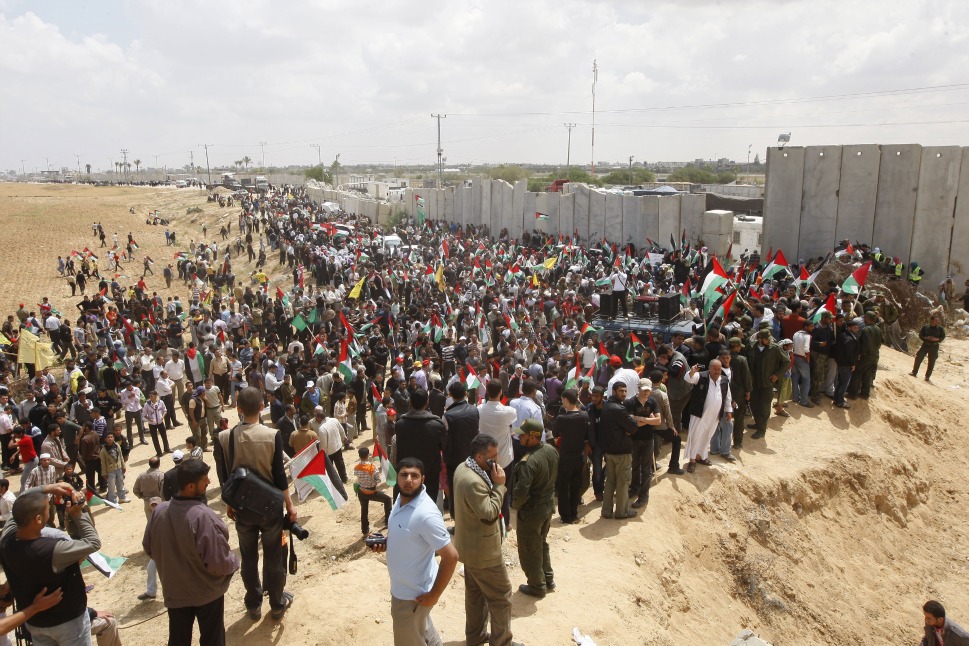Movies may be able to stimulate debate on the Middle East conflict but a lasting resolution can only be made in the real world, say leading Israeli and Palestinian film directors.
Avi Mograbi, one of Israel s most outspoken documentary makers and a harsh critic of his government s military campaigns, told AFP during a film festival in this western French city that he was well aware of the limits of his art.
I started making films thinking about changing the world. Now I am not so sure about that possibility, said the 53-year-old director.
Cinema can make a difference, but it s an extremely minor difference.
Yet Mograbi s latest documentary Z32 is a hard-hitting work, the true story of a young Israeli soldier sent on a revenge mission that left two Palestinian police officers dead.
Like much of his work, it highlights the brutality of the Israeli-Palestinian conflict. There is never any suggestion that the assassinated police officers had anything to do with the killings of Israelis. They simply represented the enemy.
Broadcast on Israeli television while Mograbi was in Rennes, the filmmaker said, I hope that it will at least provoke a debate.
Palestinian director Enas Muthaffar, who lives and works in Jerusalem, also stated there were limits to what cinema could do in the midst of a conflict as bitter as the one between her people and Israel.
You can t have peace only with films. You need the real world as well, she said.
Muthaffar was particularly wary of initiatives designed to encourage Israeli and Palestinian film directors to work together.
While such moves may on the face of it seem laudable they actually risked reinforcing the inequalities between Israelis and Palestinians, Muthaffar said.
I can t see any reason to collaborate with an Israeli filmmaker, she said.
For example, when asked if she would take part in a joint interview with a young Israeli director, she said sharing any kind of platform with Israeli filmmakers would send the wrong signal.
I can talk to him about his films. But that won t change the reality of the occupation on the ground. The reality of the Israeli-Palestinian situation is more than two people drinking coffee here, she said.
We have a problem with the Israelis because there is a military occupation.
We do not have a problem with the Israeli people, she added.
Muthaffar s colleagues agreed.
Nadine Naous, a Paris-based Palestinian director, said joint initiatives by Israeli and Palestinian directors gave the impression that the two peoples were equal, and that was simply not the case.
US-based Palestinian director Jackie Reem Salloum put it even more bluntly.
The situation is not balanced. There is an oppressor and there is occupied territory, she said.
Mograbi said he understood the Palestinian directors stance.
I understand the arguments. I understand them perfectly. At times when the conflict erupts, you cannot think about collaborations, he said.
The Israeli filmmaker said that in early 2006 he had begun showing Palestinian films at a cultural centre in Tel Aviv, and for a while Palestinian directors had come to talk about their work. Then in the summer of 2006 Israel launched its military offensive in Lebanon and the contacts stopped.
With the situation today even worse than in 2006, it was clear that for the time being collaborations between Israeli and Palestinian filmmakers would be difficult or impossible, Mograbi said.
But I hope we will be able to work together in the future, he added.
